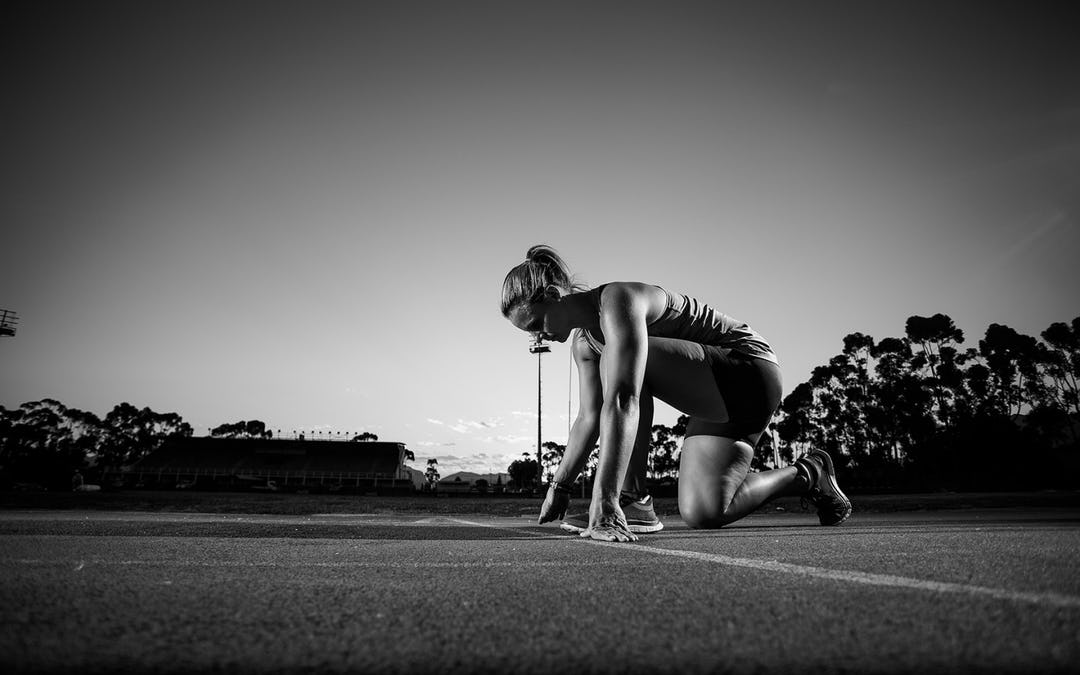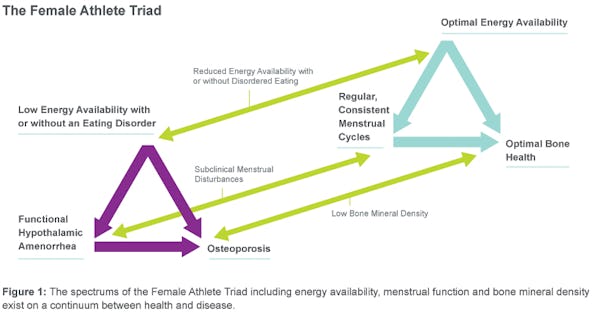People ask why we inquire at great detail about our athlete’s sexual health. Frankly for some, it seems intrusive and like it’s none of our damn business, especially in our uptight American bubble. Yet, sexual health/function is one of the earliest identifiers as health declines. Think about it – if your body is unwilling or lacks the desire to procreate, that probably hints at some insidious problem in your lifestyle or physiology.
For men, it’s commonly depicted as a lack of libido, morning erections, motivation, an increase in fat mass, as well as many other signs and symptoms. These symptoms are fairly broad/common and men are generally extremely uneducated and reluctant to seek help. When they do, it is usually through even more poorly educated avenues. Whereas women have a much more glaring symptom – their menstrual cycle becomes dysregulated or lost and their sexual function is diminished.
“A physiological system that is extremely sensitive to the stress of exercise training is the endocrine reproductive system.”
– Dr. Anthony Hackney
Enter the Female Athlete Triad
The Female Athlete Triad is described by the American College of Sports Medicine as the interrelationships among energy availability, menstrual function, and bone mineral density, which may have clinical manifestations including eating disorders, functional hypothalamic amenorrhea (loss of the menstrual cycle), and osteoporosis.
In the pro and university setting, the Female Athlete Triad is policed very heavily and the proper channels exist to get these women the help they need, but in the private world, I see this pushed under the rug and more often than not, it is just shrugged off as part of intense training. But
“Exercise was found to have no suppressive effect on reproductive function beyond the impact of its energy cost on energy availability, and the suppression was found to occur abruptly below a threshold of 30 kcal per kilogram of fat-free mass per day.”
– Dr. Ann Loucks
Thus, what we are seeing is a prominent lack of adequate refueling in female athletes. We see this again and again. Some women are flat out scared to eat or fuel performance. But this is incredibly ineffective and silly. If you are eating the highest quality foods and you are still not losing weight or don’t have the body you want, you cannot starve it to get there. You have to work with it and do some much more educated digging. As discussed in previous posts, eating less and exercising more is not the way out – especially long term.
So how much is the bare minimum to maintain your period? 30 kcal/kgLBM/day, and for a 140 pound female at 15% body fat, she would need at least 1620 calories a day. AT LEAST. Refeeding protocols for women with amenorrhea generally hover above 70 kcal/kg LBM/day (or 3800 kcals) with a drastic reduction in exercise. My general recommendations for those who are training and the beat up is to see how much they can eat and not gain weight as well as see how much they can sleep. Hard training cycles are not the time to try intense diets or go for drastic reductions in body fat.
“Restrictive eating behaviors practiced by girls and women in sports or physical activities that emphasize leanness are of special concern and the first aim of treatment for any Triad component is to increase energy availability by increasing energy intake and/or reducing exercise energy expenditure.”
– American College of Sports Medicine Position Stand
At this point some women may say, “Big deal. Losing my period doesn’t seem to inhibit my immediate performance and it is kind of nice not bleeding every month.”
But hold on. Human beings are absolutely atrocious at objectively assessing how they feel and performance is not even close to the best indicator of health. The following three points on how the Female Athlete Triad affects performance are from Brown University.
Lowered Energy Availability
An underfueled athlete is a slowed and weakened athlete. No matter what the sport, if your muscles lack sufficient and proper fuel, performance is impaired. At first, there might just be some early fatigue. As the fuel deficit worsens, actual loss of strength and muscle size can occur as the body uses skeletal muscle in order to fuel essential body functions, like heart function and breathing.
Lack of fuel can also lead to your inability to concentrate – not a quality befitting an athlete. If you are an athlete with strength losses and poor concentration, you can be more easily injured. Injuries are then slow to heal in a poorly fueled body.
Amenorrhea
Loss of menstrual periods may signal a change in your body’s intricate and complicated hormone system. Hormone imbalance from underfueling your body can result in lowered estrogen production. There are also other causes of lowered estrogen levels (estrogen is the female life force and it is probably best not to upset this balance).
A diminished estrogen level can have many effects; the most immediately apparent one can be bone loss. Amenorrhea can often go unreported to medical providers because of the common belief it is “just part of the training effect.” We do know that the bone loss that occurs as a result of this is NOT “just part of the training effect” and can start to occur after just a few months with no period.
Low Bone Mineral Density
Loss of bone, especially if you are an athlete, can be an unfortunate setup for an injury. Stress fractures can sideline sports activity and be slow to repair if you are underfueled. Repeated stress fractures and unexplained injuries should be a red flag to further evaluate your eating and exercise patterns. Bone loss that occurs because of amenorrhea can be permanent.
Our sexual function is a window into our overall health and we need to be able to look objectively at the situation and course correct if needed. We always have the choice to pursue performance at the cost of health and that is a decision that some will make, but they should know the whole story before they elect to do something rash in the name of Fran, Grace, or the 400m relay.
For more information on how the NCAA recommends screening for the Female Athlete Triad – click here.


)





